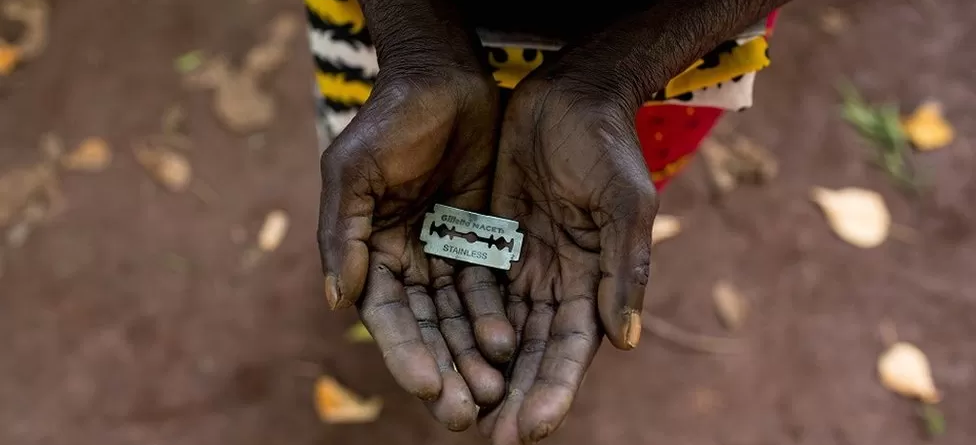Explainer: Renewed commitment to ending Female Genital Mutilation in The Gambia
Photo Source: Africa.cgtn.com
According to the World Health Organisation, Female Genital Mutilation (FGM) comprises all procedures that involve partial or total removal of external female genitalia or other injuries to the female genital organs for non-medical reasons.
Why is Female Genital Mutilation Practised in The Gambia?
Although its practice is mostly linked to religion, female genital mutilation is an ancient cultural and traditional practice in The Gambia. In most societies in The Gambia, the practice is viewed as a form of ‘purity’ for women. Most girls undergo the process as infants, others later in their childhood. One of the common reasons parents get their female children mutilated is to prevent premarital sex.
Despite being banned by exiled former president, Yahya Jammeh, female genital mutilation continues to be practised in The Gambia. According to the United Nations Children’s Fund, FGM remains common in countries like The Gambia, Somalia, Senegal, Chad, Guinea Bissau and Mali as it was 30 years ago.
There has been a long-lasting debate between anti-FGM activists and practitioners in The Gambia about it being a religious requirement. And although there is no proof that it is, many societies still believe it is a religious requirement. Generally, its practice has also been largely attributed to patriarchy and the sex class inequalities between men and women.
Consequences of FGM
Female genital mutilation has been found to have health complications for women and girls, both short-term and long-term. Some health risks include excessive bleeding, infections, genital tissue inflammation, sexual health problems, childbirth complications, and in some extreme cases, death.
There are many horrifying stories about the impact of FGM on women and the trauma that comes with it. Attempts by DUBAWA to contact some of the survivors to share their experiences failed.
“I work with survivors, but honestly, they hardly want to share their experiences these days as they complain of exploitation from activists/funders. I have linked a few, but they came out declining,” said Mam Lisa Camara, National Coordinator of Safe Hands.
Photo Source: GlobalVoices.org
Ending FGM practice in The Gambia
Over 73% of all women in The Gambia have undergone FGM. In 2015, a law was passed through an Act of Parliament to amend the Women’s Act 2010, catering for an anti-FGM legal provision. This was referred to as the Women’s Amendment Act, 2015. Section 32 (2) of the Act states that the punishment for anyone found to have breached the law ranges from imprisonment for a term of three years or a fine of D50,000 or both. As The Gambia started enjoying its new-found democracy, practitioners of FGM saw an opportunity to continue practicing, despite FGM being illegal.
Over the years, there have been collaborative efforts among activists, international organisations and individuals to end this practice. UN Member States have committed to ending FGM by 2030 under the 2030 Agenda.
In a joint statement, the United Nations Fund for Populations Activities (UNFPA) and United Nations International Children’s Emergency Fund (Unicef) in Banjul, dated February 4, 2022, opined: “On International Day of Zero Tolerance for FGM, February 6, we celebrate our collective achievements in the fight against FGM and reflect on the challenges ahead, including the plight of those girls and women living with the trauma and health complications caused by the practice. We commit ourselves, through the UNFPA-UNICEF Joint Programme to end Female Genital Mutilation, to the ahead – protect every girl and woman from FGM.”
“Whilst a lot of efforts have been put into the fight to end FGM, the practice continues due to the inequalities between men and women. We, therefore, need to address the unbalanced power relationships between men and women, starting this work with the younger generation by empowering young women and girls to know their sexual and reproductive health and rights,” said Fatou Baldeh, founder and executive director of Women in Liberation and Leadership (WILL).
Over the previous year, WILL has worked with communities in Foni, a village in the West Coast Region, through their Jo Manji Mikka project (meaning Let’s Dialogue in the Jola language) to understand the “beliefs, drivers and trends around FGM within Foni.”
“We found that despite awareness of the impact of FGM on the health of women and girls and the prohibition of the practice in The Gambia, FGM continues to be practised by communities,” she remarked.
“As we commemorate Female Genital Mutilation Zero Tolerance Day 2023, we renew our commitment to the fight to end FGM by 2030,” she added.
The researcher produced this explainer per the DUBAWA 2023 Kwame KariKari Fellowship partnership with Malagen to facilitate the ethos of “truth” in journalism and enhance media literacy in the country.

